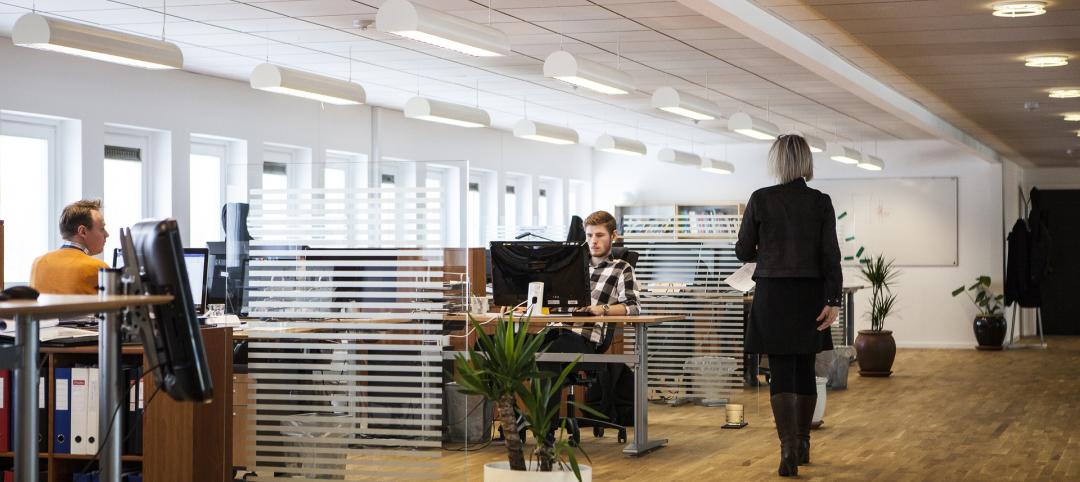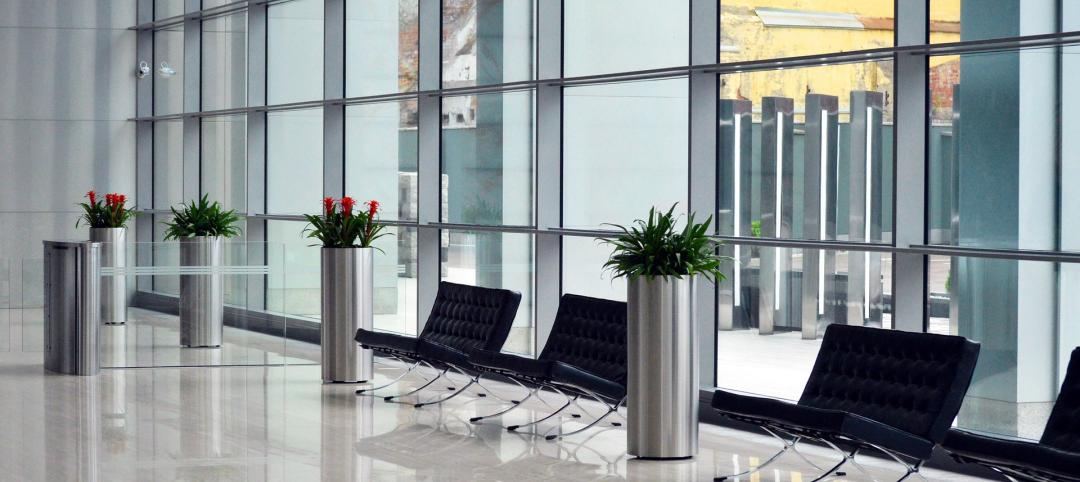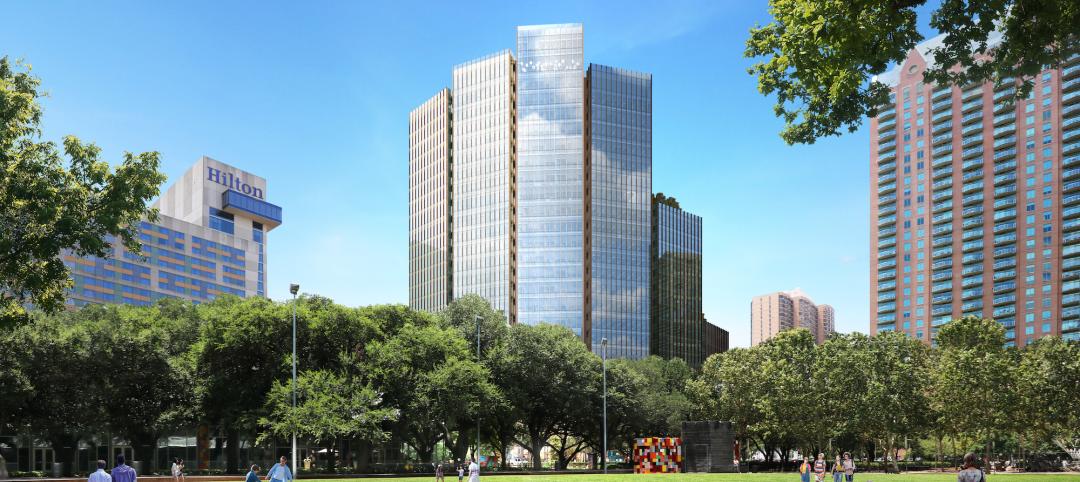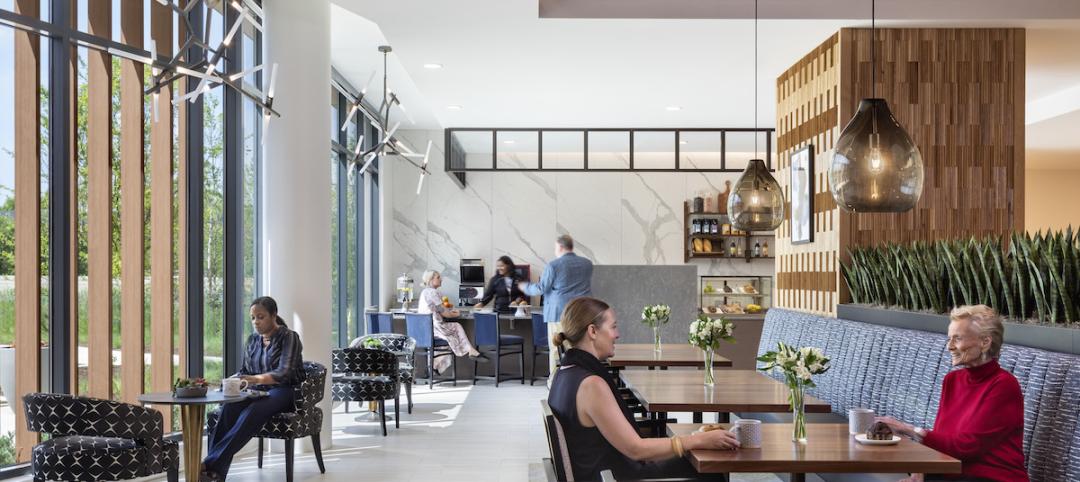The addition of air curtains in the International Green Construction Code (IgCC), the new comprehensive high performance green building code, promises energy and construction cost savings for commercial, industrial and institutional buildings.
Specifying air curtains as energy-saving, cost-cutting alternatives to vestibules in 3,000-square-foot buildings and larger has been a recent trend among consulting engineers and architects. However, many times specifications are blocked by local jurisdictions that have adopted the International Energy Construction Code (IECC), which doesn't yet sight air curtains as vestibule alternatives.
Thus, the newly-enacted IgCC, which is scheduled for March 2012 publishing, now provides an approved overlay of green construction products to the base code IECC, which is overseen by the International Code Council, the Washington-based organization responsible for providing minimum safety, sustainability and affordability building codes and standards.
Recent proposals to the IgCC by the Air Movement and Control Association International (AMCA), Arlington Heights, Ill., helped establish air curtains as a vestibule alternative with the stipulation that they're tested in accordance with ANSI/AMCA Standard 220-05, "Laboratory Methods of Testing Air Curtains for Aerodynamics Performance Ratings."
Also helpful in the code modification effort were recent studies proving air curtains as 10% more energy-efficient than vestibules. The three-month research study “Air Curtains: A Proven Alternative to Vestibule Design” used second-party validation from research/validation consultant, Blue Ridge Numerics, Charlottesville, Va., with certified results from proven computational fluid dynamics (CFD) analysis.
Besides energy savings, vestibules, especially in retail settings, consume anywhere from 25 to 250 square feet of usable retail space and carry construction costs ranging from $3,750 to $37,500, based on an average of $150/square feet construction costs.
Meanwhile air curtain proponents will continue to present energy efficiency data to code committees, in hopes of instituting the vestibule alternative measure into the IECC. The next meeting on the subject is scheduled in January 2013.
Related Stories
Sustainability | Aug 15, 2023
Carbon management platform offers free carbon emissions assessment for NYC buildings
nZero, developer of a real-time carbon accounting and management platform, is offering free carbon emissions assessments for buildings in New York City. The offer is intended to help building owners prepare for the city’s upcoming Local Law 97 reporting requirements and compliance. This law will soon assess monetary fines for buildings with emissions that are in non-compliance.
Office Buildings | Aug 15, 2023
Amount of office space in U.S. is declining for the first time, says JLL
In what is likely a historic first, the amount of office space in the U.S. is forecast to decline in 2023, according to Jones Lang LaSalle. This would be the first net decline according to data going back to 2000, JLL says, and it’s likely the first decline ever.
Fire-Rated Products | Aug 14, 2023
Free download: Fire-rated glazing 101 technical guide from the National Glass Association
The National Glass Association (NGA) is pleased to announce the publication of a new technical resource, Fire-Rated Glazing 101. This five-page document addresses how to incorporate fire-rated glazing systems in a manner that not only provides protection to building occupants from fire, but also considers other design goals, such as daylight, privacy and security.
Office Buildings | Aug 14, 2023
The programmatic evolution of the lobby
Ian Reves, Managing Director for IA's Atlanta studio, shares how design can shape a lobby into an office mainstay.
Contractors | Aug 14, 2023
Fast-tracking construction projects offers both risk and reward
Understanding both the rewards and risk of fast-tracking a project can help owners, architects, engineers, and contractors maximize the benefits of this strategy and can bring great reward on all fronts when managed properly.
MFPRO+ New Projects | Aug 10, 2023
Atlanta’s Old Fourth Ward gets a 21-story, 162-unit multifamily residential building
East of downtown Atlanta, a new residential building called Signal House will provide the city with 162 units ranging from one to three bedrooms. Located on the Atlanta BeltLine, a former railway corridor, the 21-story building is part of the latest phase of Ponce City Market, a onetime Sears building and now a mixed-use complex.
Office Buildings | Aug 10, 2023
Bjarke Ingels Group and Skanska to deliver 1550 on the Green, one of the most sustainable buildings in Texas
In downtown Houston, Skanska USA’s 1550 on the Green, a 28-story, 375,000-sf office tower, aims to be one of Texas’ most sustainable buildings. The $225 million project has deployed various sustainable building materials, such as less carbon-intensive cement, to target 60% reduced embodied carbon.
Healthcare Facilities | Aug 10, 2023
The present and future of crisis mental health design
BWBR principal Melanie Baumhover sat down with the firm’s behavioral and mental health designers to talk about how intentional design can play a role in combatting the crisis.
Architects | Aug 10, 2023
Hoffmann Architects + Engineers awards first Diversity Advancement Scholarship to Reeja Shrestha of Howard University
Now in its inaugural year, the Hoffmann Scholarship was established in collaboration with the Connecticut Architecture Foundation (CAF) to support students from underrepresented racial or ethnic groups who are seeking degrees in architecture or engineering.
Senior Living Design | Aug 7, 2023
Putting 9 senior living market trends into perspective
Brad Perkins, FAIA, a veteran of more than four decades in the planning and design of senior living communities, looks at where the market is heading in the immediate future.
















